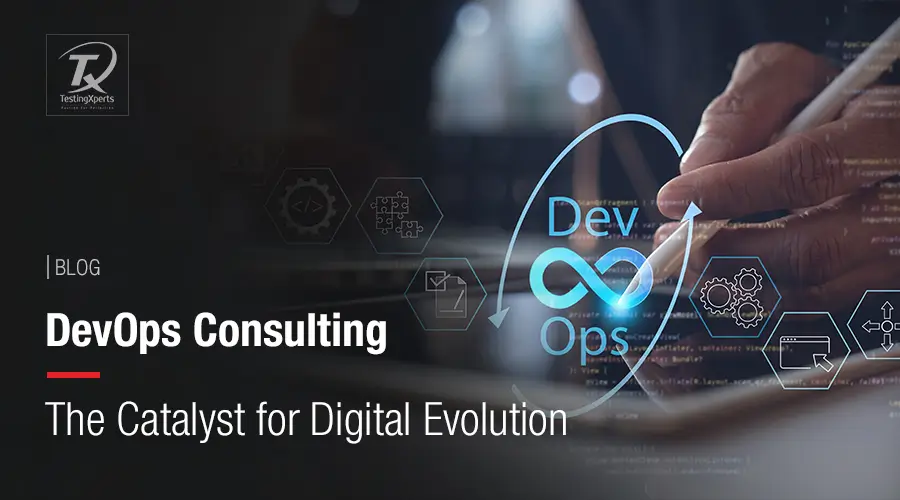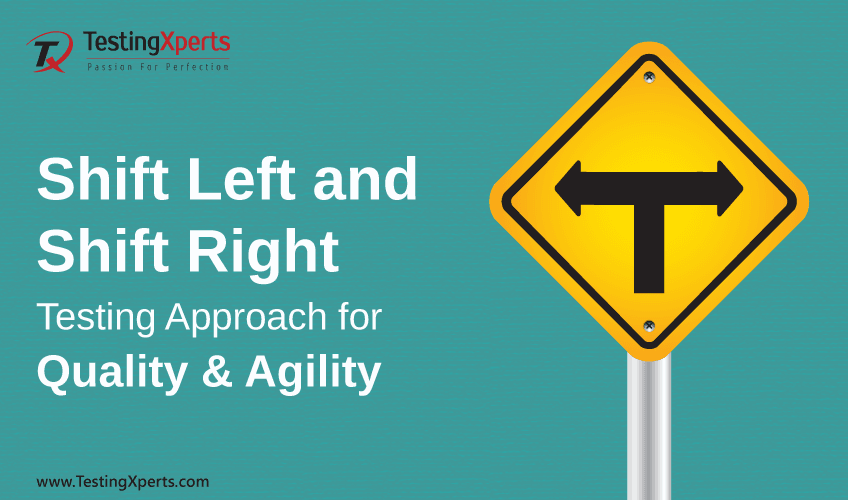
- Why Businesses Need DevOps Consulting Services?
- The Strategic Overview: DevOps Consulting Services
- How Tailored DevOps Consulting Services Add Value
- Processes in a Custom DevOps Pipeline:
- Key Benefits of DevOps Consulting Services
- Conclusion: The Future of DevOps Consulting
“DevOps is not just a methodology; it’s a mindset, a culture, and a bridge between development and operations.”
With businesses shifting towards more agile, faster and scalable operations, the demand for DevOps practices is growing faster. In fact, the global DevOps market is expected to reach $ 20 billion by 2026, with a CAGR of 24.7% from 2019 to 2026 – Allied Market Research. This quick adoption underlines the need for DevOps consulting services that can help businesses implement the best practices required to stay competitive.
Why Businesses Need DevOps Consulting Services?

Businesses are heavily dependent on software to drive their operations, making quality, speed, and reliability of applications more than critical. DevOps consulting services offer businesses with the guidance required to implement DevOps best practices, streamline their development processes, and reap a collaborative culture. Here’s why:
Accelerating Product Development – DevOps consulting look for workflows, reducing the time it takes to move from development to deployment.
Enhancing Collaboration – The consultants break down silos between development and operations teams which helps develop the culture of shared responsibility.
Improving Software Quality: DevOps helps identify and address issues earlier in the development cycle, leading to the lowest number of bugs and better-quality products.
Boosting Scalability and Flexibility: Consulting services help businesses implement automation and CI/CD pipelines, which are critical for scaling applications.
The Strategic Overview: DevOps Consulting Services

A strategic approach to DevOps consulting pays attention to a few areas: assessment, planning, implementation, and continuous improvement. Here’s how every component contributes to a successful DevOps transformation.
1. Assessment and Gap Analysis
The initial phase of DevOps consulting includes assessing the current state of an organization’s software development lifecycle. This involves recognizing existing bottlenecks, infrastructure limitations, team collaboration challenges, and any security vulnerabilities. A gap analysis assists in drafting a roadmap for implementing DevOps practices in an effective manner.
| Current State | Ideal State | Gaps | Priority |
| Siloed teams | Collaborative teams | Lack of communication | High |
| Manual testing | Automated testing | Resource intensive | High |
| Long release cycles | Short release cycles | Bottlenecks in pipeline | High |
2. Planning and Strategy Development
The planning phase is where the consulting services design a customized DevOps strategy. This involves selecting the right tools, defining roles and responsibilities, and setting objectives that are measurable. Below are the key objectives a DevOps consultant may outline:
- Reduced Deployment Time: Setting up CI/CD pipelines can significantly reduce deployment times.
- Automated Testing: Ensuring that every code change is automatically tested.
- Enhanced Monitoring: Implementing monitoring solutions for proactive issue identification.
3. Implementation of DevOps Practices
This is the execution phase, where the consultant and the development teams work closely to introduce the planned DevOps practices. The implementation phase includes setting up Infrastructure as code (IaC), configuring monitoring tools, and automating testing. A consultant ensures a smooth transition, helping teams get acquainted with the new processes without any disturbance with the ongoing projects.
| Tool Category | Examples | Purpose |
| Version Control | GIT, SVN | Track changes and collaborate |
| Continuous Integration | Jenkins, Travis CI | Automate testing and deployment |
| Infrastructure as Code | Terraform, Ansible | Automate infrastructure setup |
| Monitoring and Logging | Prometheus, ELK Stack | Track performance and errors |
4. Continuous Improvement
A fundamental principle of DevOps is regular improvement. Consulting services lay stress on the importance of monitoring and adapting DevOps practices as needs change. By tracking key metrics – like deployment frequency, defect rates, and lead time – consultants help businesses make data-driven decisions to optimize their DevOps pipelines.
How Tailored DevOps Consulting Services Add Value

One-size-fits-all approach does not meet the diverse needs of modern enterprises. Customized DevOps consulting services take into consideration a company’s industry, existing tools, enabling a smoother, team structure, and more effective transformation. Here’s how customization can offer better results:
Customized Automation Solutions
A consultant assesses a company’s specific automation needs and designs custom workflows to address them. For example, a retail business might benefit from automated testing across various devices, while a financial institution may need strict automated compliance checks in its CI/CD pipelines.
Industry-Specific Compliance
Consultants ensure that the DevOps practices they recommend align with industry regulations. For instance, a healthcare organization may need specific security measures to protect patient data, while a financial institution may require compliance with PCI-DSS standards.
Processes in a Custom DevOps Pipeline:
Custom DevOps pipeline might include stages such as:
- Code Commit: Developers push code to a shared repository.
- Automated Testing: The code goes through automated testing processes.
- Integration and Build: The code is merged and built into deployable units.
- Staging Environment: A staging environment replicates the production environment and code again tested through automated testing processes.
- Deployment: The code is automatically deployed to production.
Key Benefits of DevOps Consulting Services

| Faster Time-to-Market | Accelerates the release of new features and bug fixes. |
| Improved Quality | Automated testing and continuous monitoring enhance code reliability. |
| Operational Efficiency | Automation of repetitive tasks saves time and reduces human error. |
| Enhanced Collaboration | Fosters a collaborative culture between development and operations teams. |
| Scalability and Flexibility | Allows the infrastructure to adapt quickly to growing needs. |
Conclusion: The Future of DevOps Consulting
The world of software development is constantly evolving, and DevOps consulting services have become indispensable for organizations aiming to stay competitive. By bringing a strategic and tailored approach to DevOps implementation, consultants not only streamline processes but also empower businesses to grow, adapt, and succeed in today’s fast-paced digital landscape.
Investing in DevOps consulting services means investing in a future where technology and business align seamlessly, driving both innovation and efficiency.
Discover more
Get in Touch
Stay Updated
Subscribe for more info




